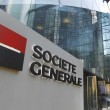R Bank signs for Fiserv’s Premier core banking tech
R Bank, a new community bank in Texas, is moving to Fiserv’s Premier core banking system, which will provide the bank with “an integrated and scalable technology foundation”, the vendor says.
R Bank was launched in 2009 and today has eight branches, 90 employees and $455 million in assets.
“The inefficiencies of our old system made it more difficult than necessary for our employees to provide excellent service,” explains Steve Stapp, president and CEO of R Bank. “With our move to Fiserv technology, processes that took five steps can be reduced to two or three. This takes a lot of pressure off our employees and makes it easier for them to focus on the customer.”
According to Stapp, the bank’s prior technology environment posed a particular challenge when serving customers with multiple banking relationships. If a customer called with questions about a business account, a personal account and a loan, the employee would need to enter and move between three systems to find the answers. In contrast, Fiserv emphasises that its technology provides information for all of a customer’s banking relationships in a single view.
Before choosing Fiserv and its Premier core system, a team of 18 people from R Bank went through a six-month evaluation of four tech vendors.
“Once we narrowed the vendors to two, we visited financial institutions running each potential core account processing platform. This gave us the opportunity to speak one on one with others and really get a feel for how they use the system,” says Marc Bone, R Bank’s CFO. “The way Fiserv technology can support our people, including helping our operations staff provide needed information to the front line, is a strength that stood out among other account processing solutions.”
Bone notes an important attribute that attracted the bank to Fiserv was the ability to provide more options and tools for serving businesses of all sizes. R Bank also found Fiserv has the capabilities the bank needs to continue growing its lending portfolio in the business market.











































